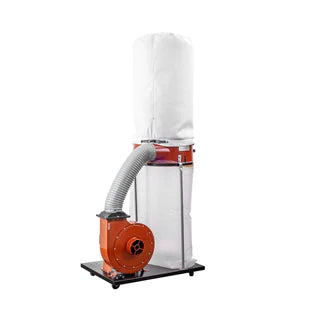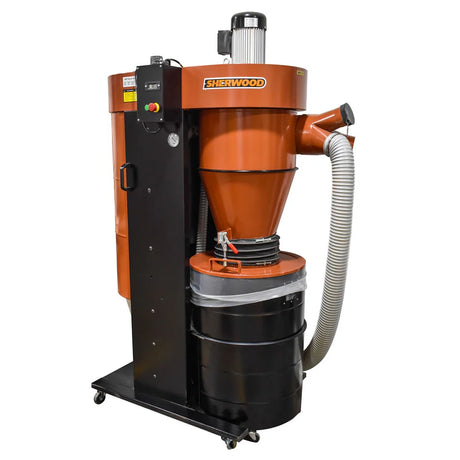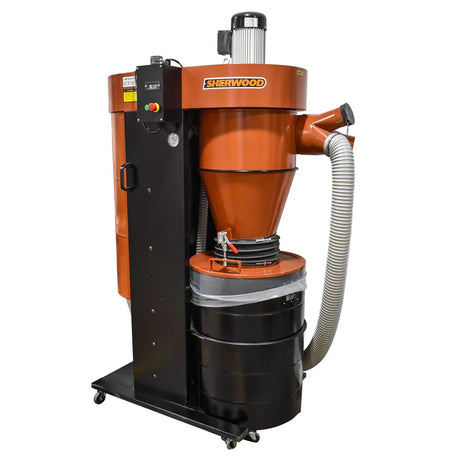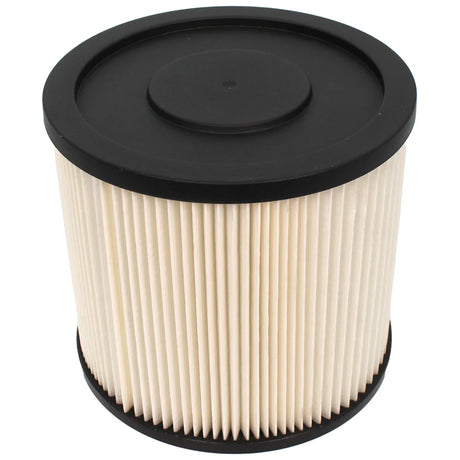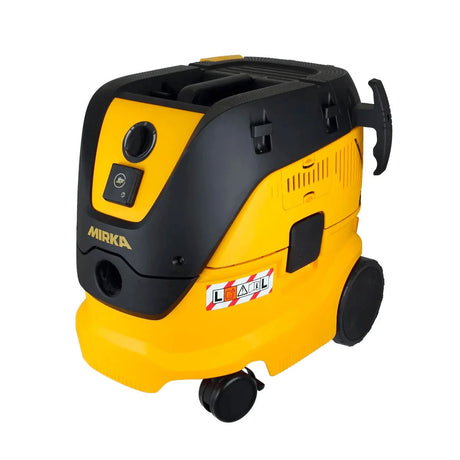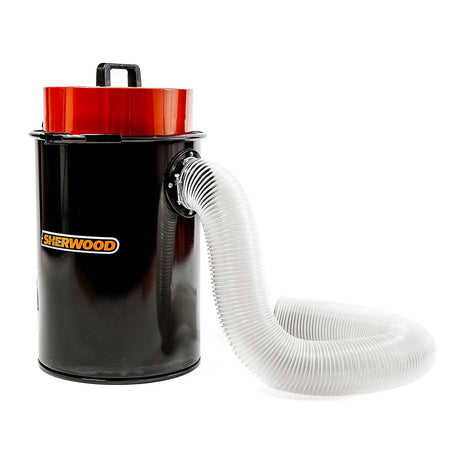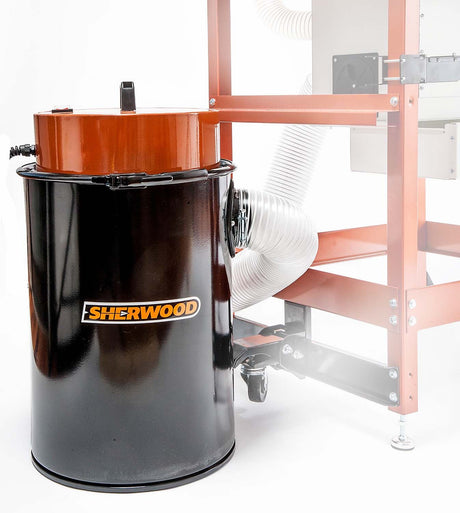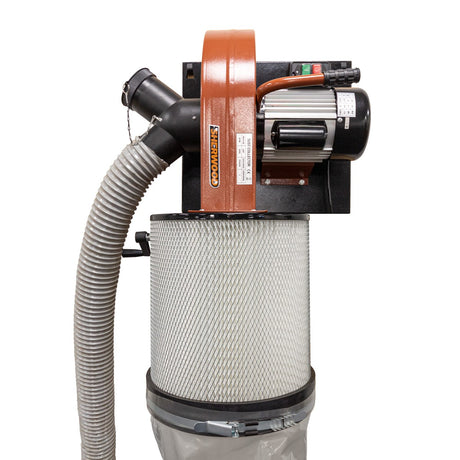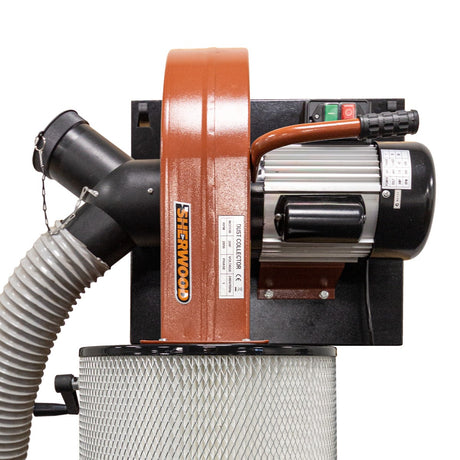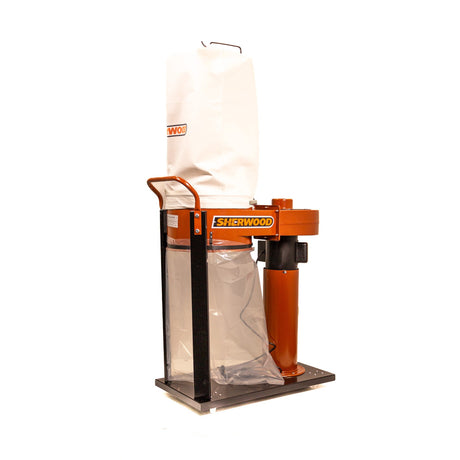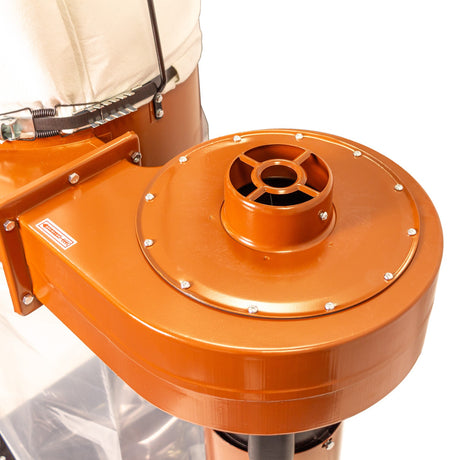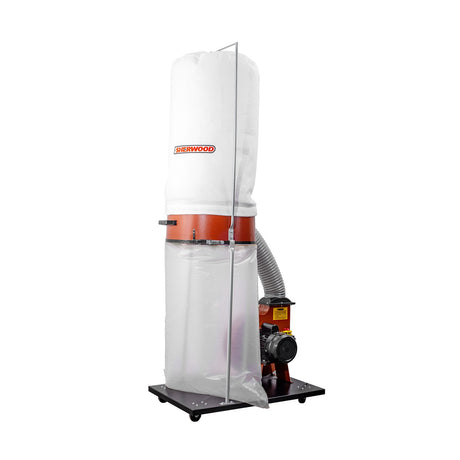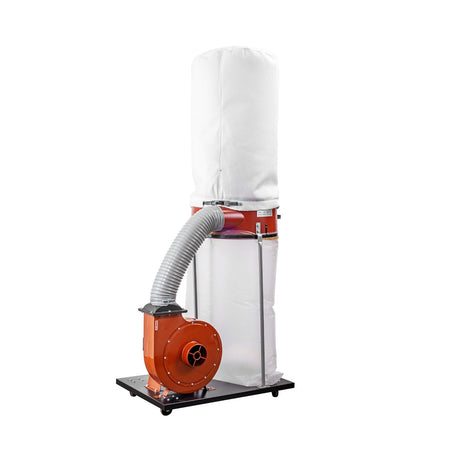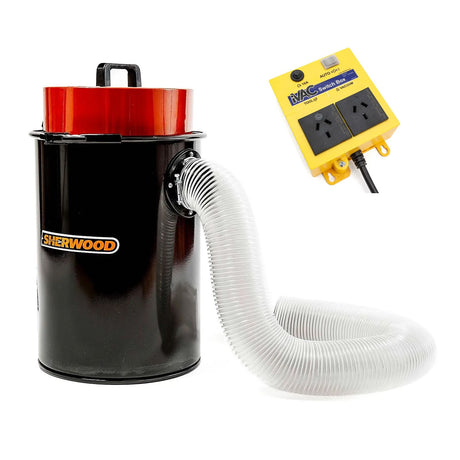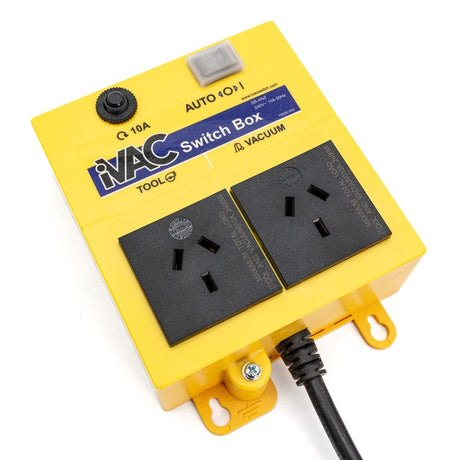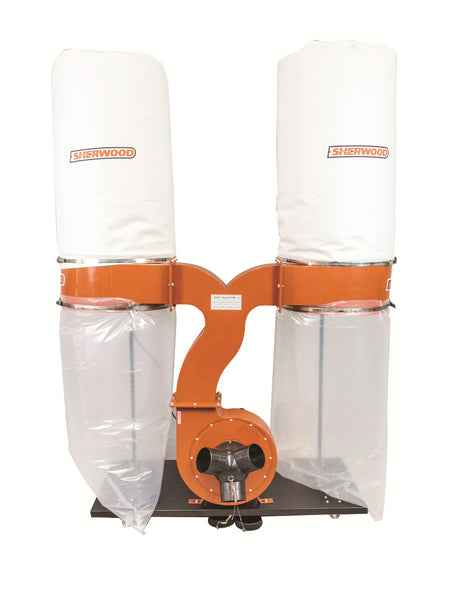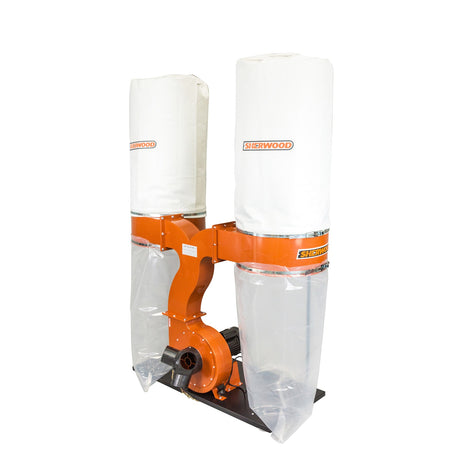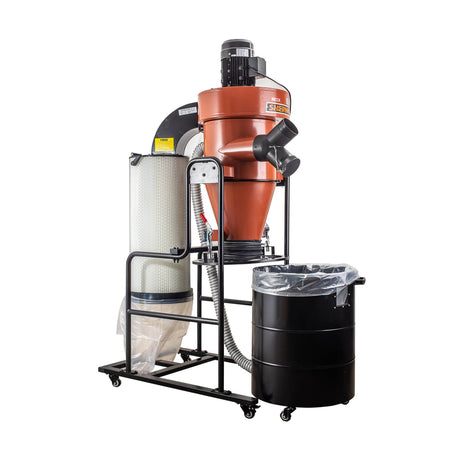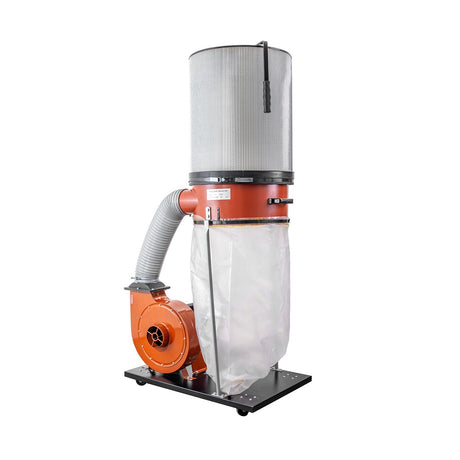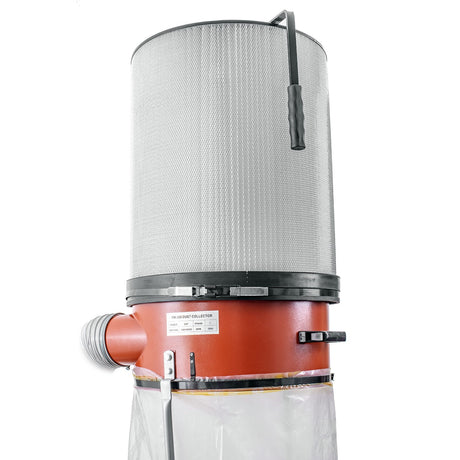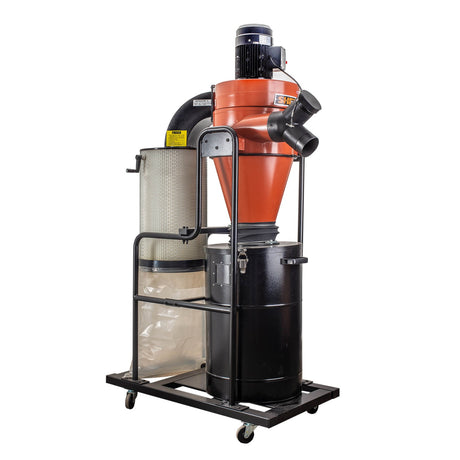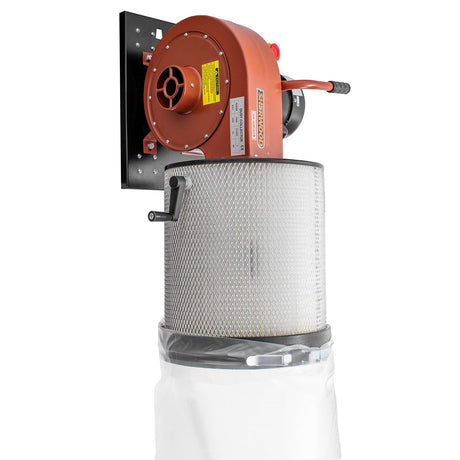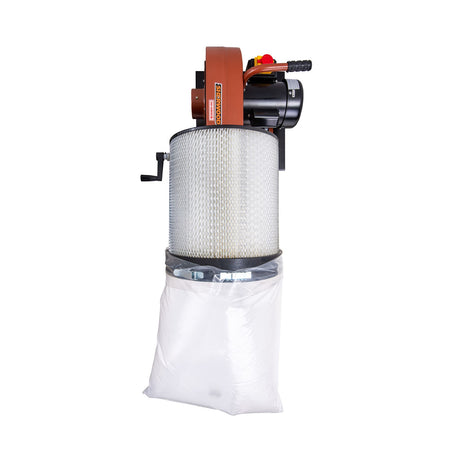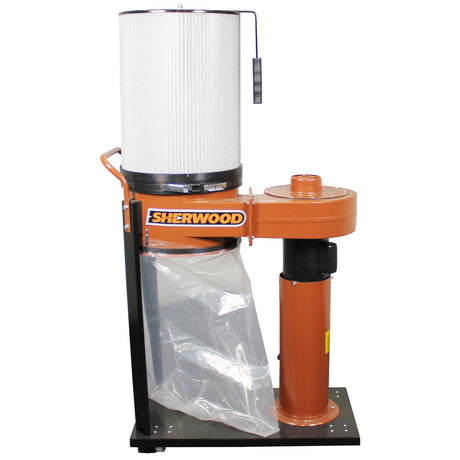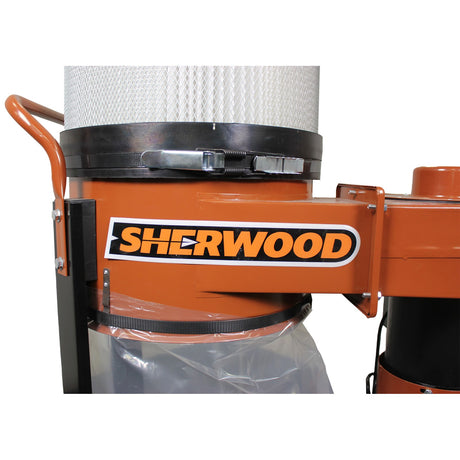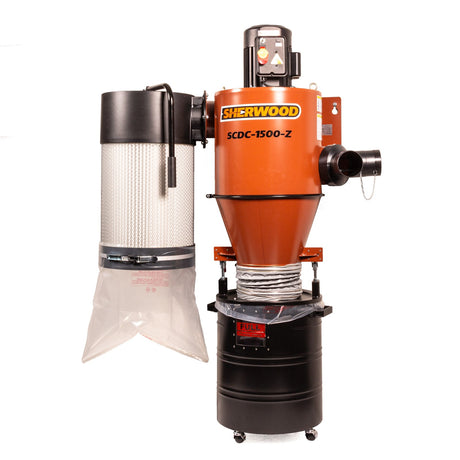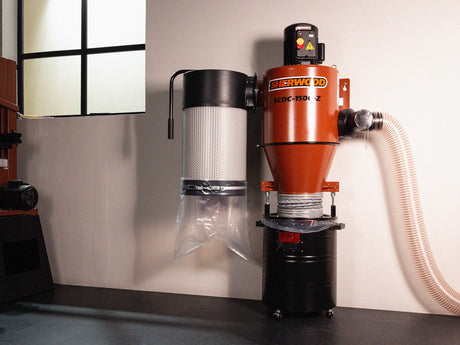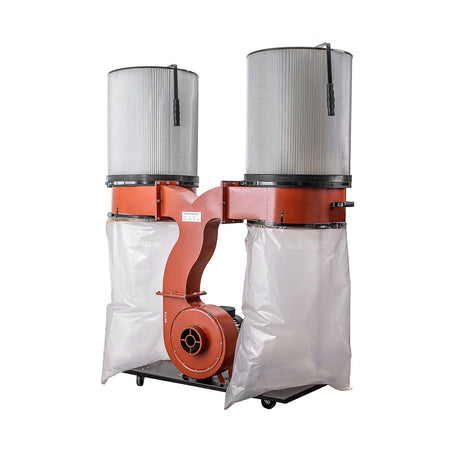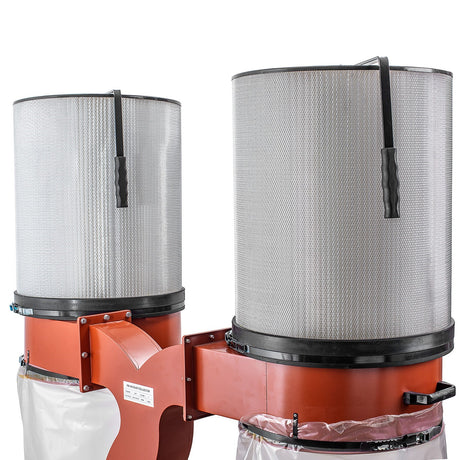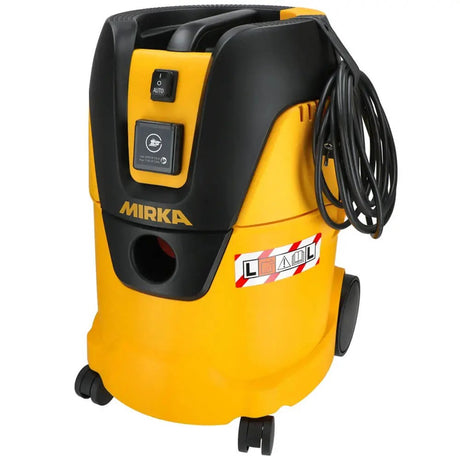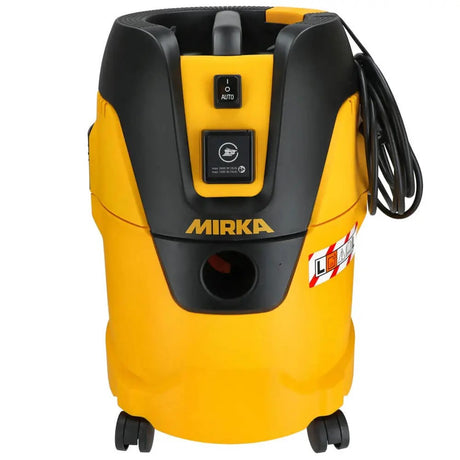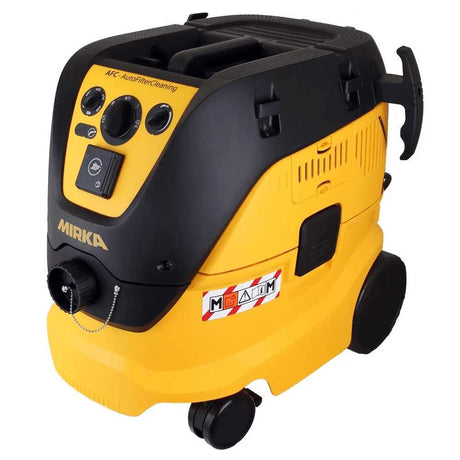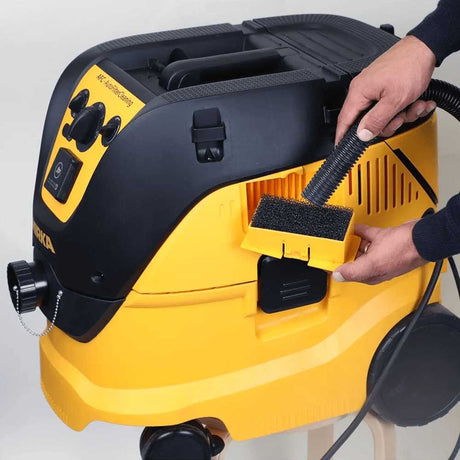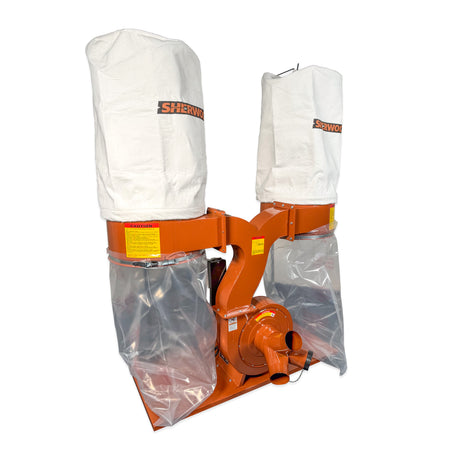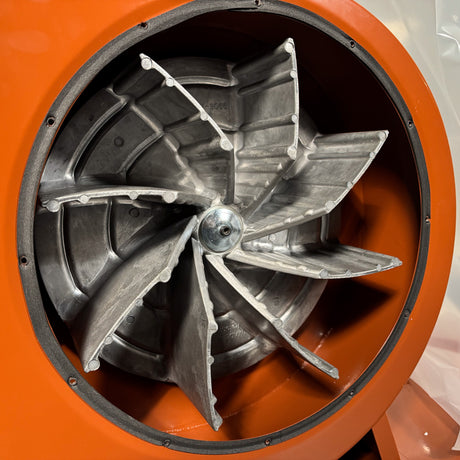Sherwood
Sherwood 1100W 1.5HP Compact Dust Extractor Portable 50L
$179.90$229.00Unit price /UnavailableLow stock (10+ units)Sherwood
Sherwood 2HP Dust Extractor Single-Stage Dust Collection Wall Mounted 1200CFM
$599.00$699.00Unit price /UnavailableIn stockSherwood
Sherwood 1HP Dust Extractor Single-Stage Dust Collection 600CFM with Needle Felt Filter Bag
$254.00$299.00Unit price /UnavailableVery low stock (3 units)Sherwood
Sherwood 2HP 1200CFM Dust Extractor with Needle Felt Filter Bag Single Stage Dust Collection
$399.00$485.00Unit price /UnavailableIn stockSherwood
Sherwood DC-50 with iVac Switchbox Automated Dust Collection Bundle
$331.00$388.90Unit price /UnavailableIn stockSherwood
Sherwood 3HP Dust Extractor with Twin Needle Felt Filter Bags Single-Stage Dust Collection 1900CFM
$552.00$649.00Unit price /UnavailableIn stockSherwood
Sherwood 3HP Cyclone Dust Extractor Two-Stage Dust Collection 750CFM
$1,349.00$1,599.00Unit price /UnavailableIn stockSherwood
Sherwood 2HP Dust Extractor Single-Stage Dust Collection 1200CFM with Cartridge Filter
$599.00$764.00Unit price /UnavailableIn stockSherwood
Sherwood 2HP Cyclone Dust Extractor Two-Stage Dust Collection 600CFM
$1,259.00$1,399.00Unit price /UnavailableIn stockSherwood
Sherwood 1HP Mini Dust Extractor Wall Mounted 600CFM
$467.00$549.00Unit price /UnavailableSherwood
Sherwood 1HP Single Stage Dust Collector Pleated Filter 600CFM
$466.00$548.00Unit price /UnavailableSherwood
Sherwood 1.5HP Cyclone Dust Extractor Wall Mounted Two-Stage Dust Collection 1100CFM
$2,069.00$2,299.00Unit price /UnavailableIn stockSherwood
Sherwood 3HP Dust Extractor with Twin Filter Cartridges Single-Stage Dust Collection 1900CFM
$1,026.00$1,207.00Unit price /UnavailableIn stockMirka
Mirka Dust Extractor 1230M AFC Vacuum M-Class
$1,655.00$1,839.00Unit price /UnavailableIn stockSherwood
Sherwood 3HP Dust Extractor with Needle Felt Filter Bags Single Stage Dust Collection 2300CFM
$1,439.00$1,599.00Unit price /UnavailableIn stock
Dust Extractors & Dust Collectors
At Timbecon, we understand the importance of a clean and safe woodworking environment, which is why our range of dust collectors is second to none. Our dust collection systems are designed to effectively remove wood dust, chips, and debris, ensuring a cleaner workshop and better air quality. Whether you're a professional craftsman or a woodworking enthusiast, our dust collector range caters to all needs.
From compact models for smaller workshops to more powerful systems for larger spaces, our dust collector woodworking solutions are built for efficiency and durability. Explore our collection to find the perfect dust management solution for your workspace and experience the difference a quality dust collection system can make in your woodworking projects.
FAQs
What are the benefits of using a dust extractor, and are they essential in a woodworking environment?
Using a dust extractor in woodworking is crucial for maintaining a clean, safe workspace. Benefits include reduced air pollutants, enhanced tool longevity, reduced risk of fire and a tidier work area. They are essential for health and safety compliance, especially in professional settings.
Are there different types of dust extractors and collectors available for woodworking?
Yes, we offer various dust extractors and collectors tailored for woodworking. Our range includes models suitable for different sizes of workshops and types of woodworking operations, ensuring there's a perfect fit for your specific needs.
What size and capacity of dust extraction do I need?
Selecting the right dust extraction system involves understanding how different models handle air and debris and comparing that to the size of your workshop. Smaller dust vacuums pull in the air quicker and have a higher CFM (Cubic Feet per Minute), which might seem better at first. However, for larger, two-stage dust extractors, a slightly slower air pull, or lower CFM, is more effective. This slower pace helps them separate the fine dust from larger debris, collecting them into separate sections. So when finding the right dust extractor for your workshop, it's not a matter of going by workshop dimensions but looking at the capacity of your dust extractor.
What power requirements do I need to run your dust extractors?
Our dust extractors typically require 1-3 HP to run effectively, which is suitable for standard electrical setups in most workshops. Larger, more powerful models designed for industrial use might need more powerful electrical configurations.
Can a dust extractor be customised to fit specific woodworking machinery?
Our dust extractor ports can be adapted to fit specific woodworking machinery. We offer various attachments and fittings to ensure seamless integration with your existing equipment.
How do I properly install and set up a dust extractor in my workshop?
Installation and setup should follow the manufacturer's instructions. It's essential to position the unit for optimal airflow and accessibility and to ensure all connections to woodworking machinery are secure and effective.
For additional sources, you can also use our DIY Advice page and YouTube channel, which features blogs and videos from the expert team at Timbecon and reputable woodworking sources around the globe.
Are there any safety considerations when using a dust extractor?
Safety considerations include:
- Ensuring proper installation.
- Regular maintenance to prevent clogs or malfunctions.
- Using the extractor in accordance with its intended purpose to avoid any safety hazards.
What types of filtration systems are commonly used in woodworking dust extractors?
Common filtration systems in woodworking dust extractors include Needle Felt Filter Bags and HEPA filters for fine dust. The choice depends on the specific requirements of your woodworking projects and its materials.
How do I know when it is time to clean or replace the filter?
Indicators that it's time to clean or replace your filter include reduced suction power, visible dust accumulation, and increased noise levels. Regular checks and adherence to the manufacturer's maintenance guidelines will help determine the right time.
How often should I perform maintenance on my dust extractor to keep it running efficiently?
Regular maintenance, such as filter cleaning and checking for blockages, should follow with the usage frequency and the manufacturer's recommendations to maintain efficiency.
Can dust extraction help comply with workplace safety and environmental regulations?
Effective dust extraction is critical in complying with workplace safety and environmental regulations, particularly regarding air quality and respiratory health in woodworking environments.
How loud are dust extractors, and are there any noise reduction options?
The noise level of dust extractors can vary, but generally, they are designed to operate within an acceptable noise range for workshop environments. Some models are specifically engineered to be quieter, reducing the overall noise impact in your workspace. Noise reduction options are available, such as placing the extractor in a separate room or area with sound-dampening materials. These measures can significantly minimise the noise level, making the workshop more comfortable while ensuring efficient dust extraction.
Can I connect multiple woodworking machines to a single dust extraction system?
Many of our dust extractors are designed to connect to multiple machines simultaneously, maximising efficiency, safety and convenience in your workshop.
Are there mobile or wall-mounted dust collection options available for smaller workshops?
We offer mobile and wall-mounted dust collection options, perfect for smaller workshops where space-saving solutions are essential.
What are the differences between single-stage and two-stage dust extractors?
Single-stage dust extractors collect all debris in one container, while two-stage extractors separate larger chips from finer dust using cyclonic separation, enhancing efficiency and filter longevity.
Do dust extractors come with warranties or guarantees, and what do they cover?
All Sherwood dust extractors come with a five-year warranty, ensuring peace of mind and reliability. This warranty covers any manufacturing defects and the product's ability to perform as advertised under normal use. It doesn't cover misuse, neglect, or wear and tear parts.
Can I use a dust extractor for both fine dust and larger wood chips in my shop?
Yes, our dust extractors are designed to handle fine dust and larger wood chips, providing comprehensive dust management in your shop.
Are there any energy-efficient options for dust extractors to reduce operating costs?
Our dust extractor models are designed to meet a variety of workshop needs, including options with lower horsepower (HP) for tailored usage. While these variations in HP may result in reduced energy consumption, we do not specifically market our models as 'energy-efficient.'
Can a dust extractor be integrated with automation or remote control systems?
Many of our dust extractors are compatible with automation and remote control systems. This integration allows for greater convenience, as you can control dust collection from different parts of your workshop. It also helps optimise the dust extraction process, as the system can be programmed to activate or deactivate in sync with the usage of your woodworking machines, enhancing efficiency and user experience.

